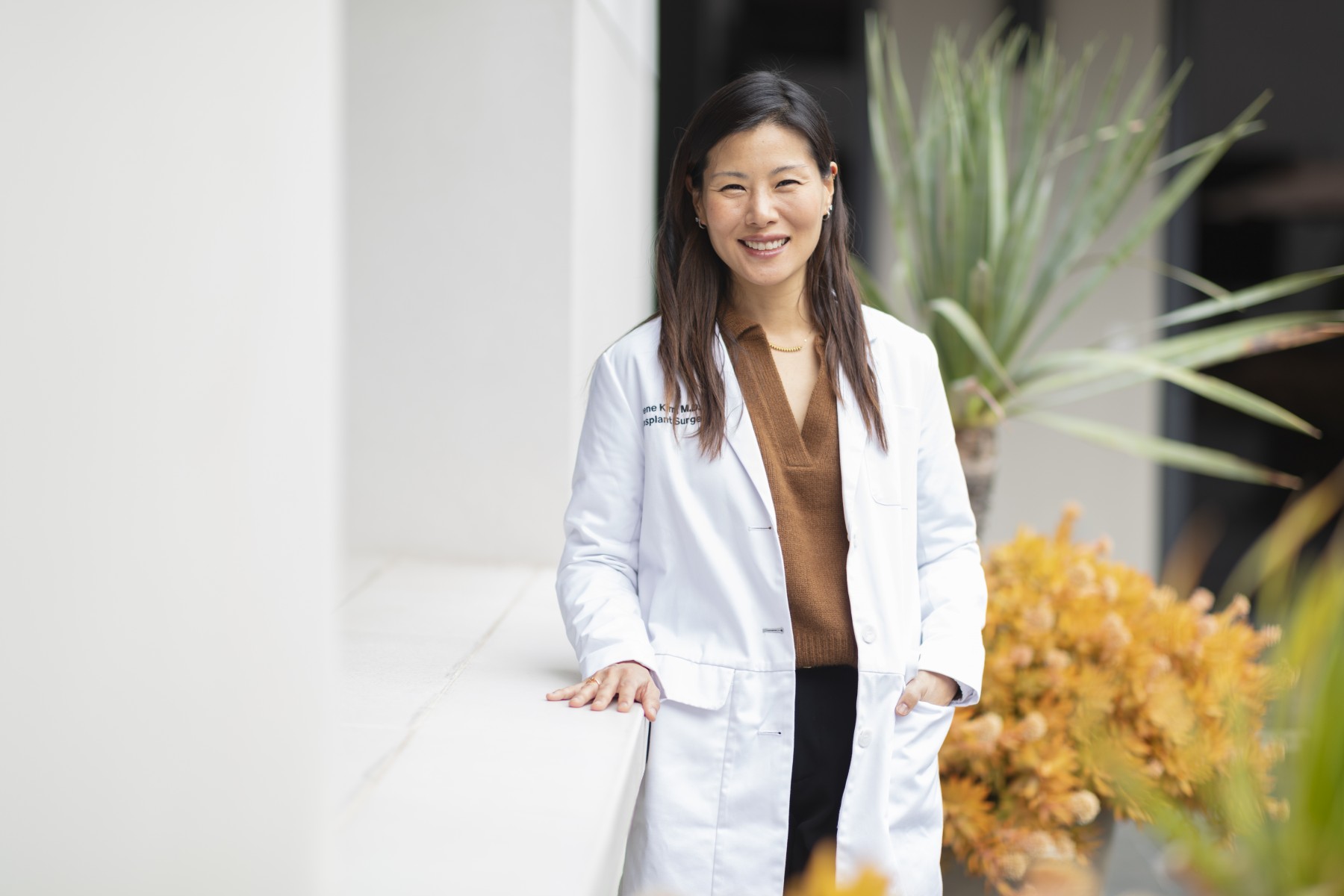Cedars-Sinai Marks Donate Life Month With Record Numbers for Transplant Patients

During 2022, Cedars-Sinai Surgeons Completed 583 Solid Organ Transplants, Topping Medical Center Record Set in 2021
As the nation takes notice of the importance of organ donations during April, National Donate Life Month, Cedars-Sinai is reporting a record-setting year for calendar year 2022.
Together, surgeons at the Cedars-Sinai Comprehensive Transplant Center and Smidt Heart Institute performed 583 solid organ transplants during calendar year 2022, surpassing 2021’s record of 573 transplants and establishing a new benchmark for the medical center.
“These numbers reflect Cedars-Sinai’s distinctive combination of leading-edge research and unwavering dedication to our patients,” said Irene Kim, MD, director of the Cedars-Sinai Comprehensive Transplant Center and a Cedars-Sinai professor of Surgery. “We are constantly seeking ways to improve the patient experience and provide the most comprehensive and clinically effective treatments.”
Cedars-Sinai experienced one of the largest increases in kidney transplantation. Transplant surgeons and nephrologists completed 286 kidney transplants and four dual kidney/pancreas transplants, compared with the previous year’s 269 kidney transplants and 11 dual kidney/pancreas transplants.
One reason for the high number of kidney transplant patients: Cedars-Sinai is a national leader in performing transplants on patients with high levels of antibodies. Such patients comprise about one-third of patients on kidney transplant lists and are difficult to transplant because antibodies make organ rejection more likely.
Cedars-Sinai’s Stanley Jordan, MD, director of the Comprehensive Transplant Center’s Human Leukocyte Antigen and Transplant Immunology Laboratory and professor of Medicine, pioneered a treatment protocol called plasmapheresis, which removes prohibitive antibodies from the blood and enables patients who might not otherwise be eligible to receive a lifesaving transplant.
“Cedars-Sinai patients were the first to benefit from this specialized therapy that allows highly sensitized patients to receive lifesaving kidney transplants,” said Kim, the Esther and Mark Schulman Chair in Surgery and Transplantation Medicine.
 By patient volume, the Smidt Heart Institute at Cedars-Sinai is the largest cardiothoracic transplant center—meaning heart and lung transplants—in California and the third-largest cardiothoracic transplant center in the U.S.
By patient volume, the Smidt Heart Institute at Cedars-Sinai is the largest cardiothoracic transplant center—meaning heart and lung transplants—in California and the third-largest cardiothoracic transplant center in the U.S.
Lung transplantation, led by Joanna Chikwe, MD, chair of the Department of Cardiac Surgery in the Smidt Heart Institute, along with surgical director Dominick Megna, MD, and medical director Reinaldo Rampolla, MD, also saw an increase of transplants performed. The comprehensive team transplanted new lungs into 74 patients, 14 more than in 2021.
Similarly, heart transplantation patients benefited from being cared for at one of the highest-volume centers in the country. Over the past six years combined, the Smidt Heart Institute has completed 706 heart and dual heart/lung transplants, more than any other U.S. medical center.
“Our team of cardiothoracic surgeons offers innovative treatment options and novel surgical techniques that enable minimally invasive transplant surgery,” said Chikwe, the Irina and George Schaeffer Distinguished Chair in Cardiac Surgery and professor of Cardiac Surgery. “We are grateful to the patients who trust us with their health and lives.”
Liver surgeons, under the leadership of Nicholas Nissen, MD, director of Hepatobiliary and Pancreatic Surgery, and Alexander Kuo, MD, professor of Medicine and medical director of the Liver Transplant Program, completed 107 liver transplants in 2022.
“Organ donation is the gift of life,” Nissen said. “We are able to help patients live their best lives only because of the generosity of organ donors and their families. Every successful transplant is a tribute to them.”
Read more in Discoveries: Meet Transplant Surgery Trailblazer Irene Kim, MD



